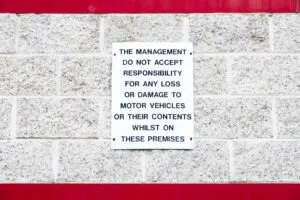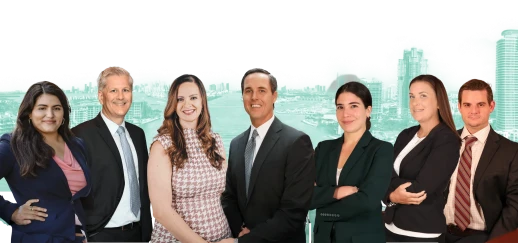
Premises liability is a legal concept that holds property owners responsible for accidents and injuries that occur on their property due to negligence. It applies when an injury results from a dangerous condition that the property owner knew about or should have known about.
If you’ve been injured on someone else’s property, you may have heard the term “premises liability” mentioned. As a Fort Myers premises liability lawyer would explain, understanding this concept is crucial if you’re considering legal action. Here’s what you need to know.
Understanding Premises Liability
Premises liability is a subset of personal injury law that deals specifically with injuries occurring on someone’s property. The core principle is simple: property owners have a legal duty to maintain a safe environment for visitors. When they fail to do so, and someone gets hurt as a result, they may be held liable for the injuries.
However, like many legal concepts, premises liability can be more complex in practice. Let’s break down the key elements and scenarios where it applies.


Expect More, Receive More: Legal Support That Feels Like Family
Key Elements of Premises Liability Cases
To establish a premises liability claim, several elements must typically be proven:
- The defendant owned, occupied, or leased the property
- The defendant was negligent in the use or maintenance of the property
- The plaintiff was injured as a result of this negligence
- The defendant’s negligence was a substantial factor in causing the injury
Let’s explore each of these elements in more detail.
Property Ownership or Control
The first step in a premises liability case is establishing that the defendant had control over the property. This doesn’t necessarily mean they owned it – renters, leaseholders, and property managers can also be held liable in certain situations.
For example, if you slip and fall in a store, the store owner might be liable even if they don’t own the building. They have control over the day-to-day operations and maintenance of the space they occupy.
Negligence in Property Maintenance
Negligence is at the heart of premises liability cases. To prove negligence, you must show that the property owner:
- Knew about a dangerous condition on their property
- Should have known about the condition through reasonable care
- Failed to repair the condition or warn visitors about it
What constitutes “reasonable care” can vary depending on the circumstances. A homeowner might be expected to shovel snow from their walkway within a reasonable time after a snowstorm. A store owner might be expected to clean up spills as soon as they’re discovered and place warning signs around wet areas.
Injury Resulting from Negligence
It’s not enough to show that a property owner was negligent – you must also prove that this negligence directly led to your injury. This involves demonstrating a clear causal link between the dangerous condition and your accident.
For instance, if you tripped over a broken step that the property owner knew about but failed to repair, you would need to show that this specific hazard caused your fall and subsequent injuries.
Substantial Factor in Causing Injury
Finally, you must prove that the property owner’s negligence was a substantial factor in causing your injury. This means that while other factors may have contributed to the accident, the property owner’s failure to maintain safe conditions played a significant role.
When Does Premises Liability Apply?
Premises liability can apply in a wide range of scenarios. Here are some common situations:
Slip and Fall Accidents
These are perhaps the most well-known premises liability cases. They can occur due to:
- Wet or slippery floors
- Uneven surfaces
- Poor lighting
- Obstacles in walkways
Inadequate Security
Property owners may be held liable if a lack of proper security measures leads to injury. This could apply in cases of assault or theft in:
- Parking lots
- Apartment complexes
- Hotels
- Shopping centers
Swimming Pool Accidents
Pool owners have a responsibility to ensure their pools are safe. This includes:
- Proper fencing and gates
- Clear marking of pool depths
- Adequate lighting
- Presence of safety equipment
Factors Affecting Premises Liability
Several factors can influence a premises liability case:
Status of the Visitor
In Florida, the property owner’s duty of care depends on the status of the visitor:
- Invitees (e.g., customers in a store) are owed the highest duty of care
- Licensees (e.g., social guests) are owed a moderate duty of care
- Trespassers are owed minimal duty of care, except in cases involving children
Foreseeability of the Hazard
If a reasonable person would have foreseen the danger, the property owner may be more likely to be held liable. For example, not fixing a broken handrail on a staircase could be seen as ignoring a foreseeable hazard.
Open and Obvious Doctrine
This legal principle states that property owners may not be liable for injuries caused by hazards that are open and obvious to a reasonable person. However, there are exceptions to this rule, especially if the property owner should have anticipated that people would encounter the hazard anyway.
Defenses in Premises Liability Cases
Property owners may use several defenses to deny responsibility for premises liability cases:
- Comparative Negligence: They may argue that you were partially responsible for your injury.
- Lack of Knowledge: The property owner might claim they had no knowledge of the dangerous condition and couldn’t have discovered it through reasonable care.
- Assumption of Risk: In some cases, they may argue that you knew about the risk and chose to encounter it anyway.
Contact Viles & Beckman for Help with Your Premises Liability Case
Now that you know what premises liability is and how it applies, contact us if you believe you have a case. At Viles & Beckman, the 5-Star Law Firm, we have the knowledge, experience, and resources to handle your premises liability case effectively.
Contact us today to schedule your free consultation. Let us put our expertise to work for you so you can focus on your recovery while we fight for your rights.



